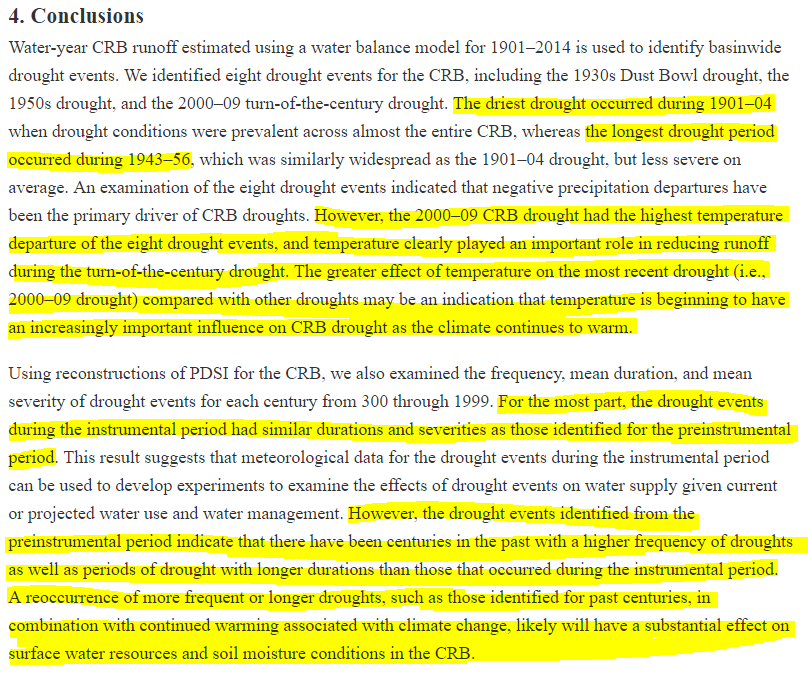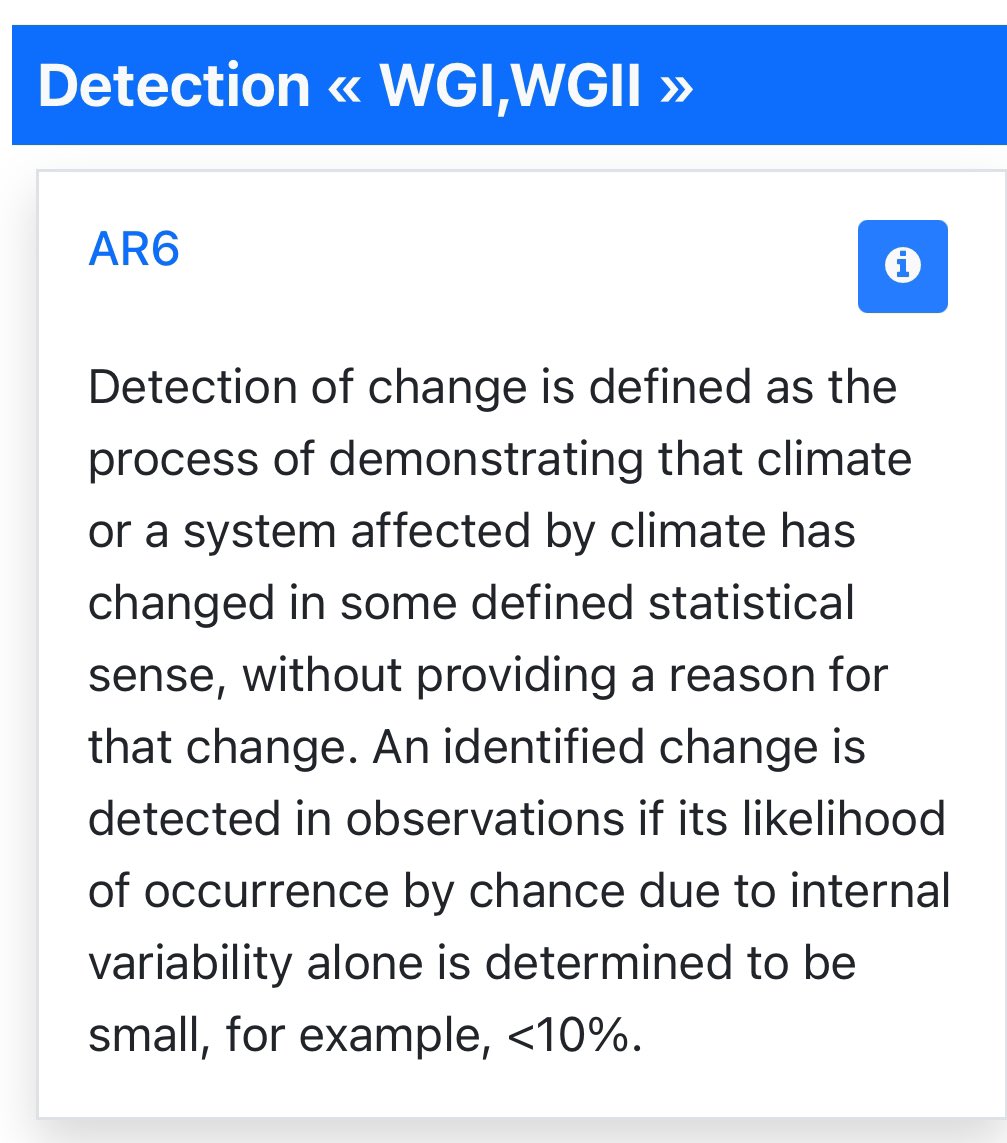I was curious
So I graphed percent of CONUS in drought according to the US drought monitor, data is weekly from 1/2000
droughtmonitor.unl.edu/CurrentMap.aspx
So I graphed percent of CONUS in drought according to the US drought monitor, data is weekly from 1/2000
droughtmonitor.unl.edu/CurrentMap.aspx

And here from EPA is a longer time series, 1895-2020 for CONUS
Note: On this graph up means wetter, down means dryer
epa.gov/climate-indica…
Note: On this graph up means wetter, down means dryer
epa.gov/climate-indica…

And here is the percent in drought (D0-D4) of the Colorado River Basin over Jan 2000 to present
droughtmonitor.unl.edu/CurrentMap.aspx
droughtmonitor.unl.edu/CurrentMap.aspx

And here is Colorado River Basin drought 1901-2015
via McCabe et al 2020
journals.ametsoc.org/view/journals/…
via McCabe et al 2020
journals.ametsoc.org/view/journals/…

And for a much longer perspective, here is Colorado River Basin drought over the past 1800 years
Also from McCabe et al 2020
Also from McCabe et al 2020

And here is what the US National Climate Assessment concluded on drought in 2018
nca2018.globalchange.gov/chapter/2/
nca2018.globalchange.gov/chapter/2/

PS
A side note
For accurately citing peer reviewed literature & US NCA on drought trends in 2013 Congressional testimony, I earned the distinction of being the only US researcher in history to be attacked by the president's science advisor (Holdren) in a White House blog post 😎
A side note
For accurately citing peer reviewed literature & US NCA on drought trends in 2013 Congressional testimony, I earned the distinction of being the only US researcher in history to be attacked by the president's science advisor (Holdren) in a White House blog post 😎
PPS
Holdren is still wrong
The IPCC, USNCA & peer reviewed literature that they rely on is still correct
Climate change is real, and aggressive mitigation & adaptation policies make good sense
The reality of climate change doesn't mean scientific integrity can be ignored
/END
Holdren is still wrong
The IPCC, USNCA & peer reviewed literature that they rely on is still correct
Climate change is real, and aggressive mitigation & adaptation policies make good sense
The reality of climate change doesn't mean scientific integrity can be ignored
/END
Oh, I guess I should point out Holdren's false claims about me posted on White House website were basis for a subsequent Congressional investigation of me that turned my life upside down & almost ended my career
But I'm still here
And that kids is how I came to understand tenure
But I'm still here
And that kids is how I came to understand tenure
• • •
Missing some Tweet in this thread? You can try to
force a refresh


















